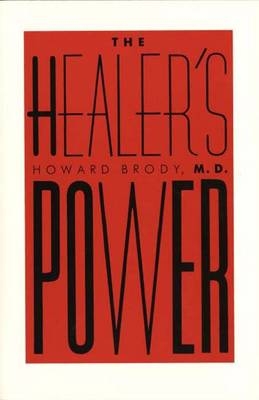
The Healer's Power
Seiten
1993
Yale University Press (Verlag)
978-0-300-05783-6 (ISBN)
Yale University Press (Verlag)
978-0-300-05783-6 (ISBN)
- Titel z.Zt. nicht lieferbar
- Versandkostenfrei
- Auch auf Rechnung
- Artikel merken
Drawing on literary works dealing with medical power, Brody argues that proposals to reduce or eliminate the power of the physician are misguided. Instead, there should be guidelines to enable the physician to share with the patient the information and responsibility for deciding on treatment.
Although the physician’s use and misuse of power have been discussed in the social sciences and in literature, they have never been explored in medical ethics until now. In this book, Dr. Howard Brody argues that the central task is not to reduce the physician’s power, as others have suggested, but to develop guidelines for its use, so that the doctor shares with the patient both information and the responsibility for deciding on appropriate treatment.
Dr. Brody first reviews literary works dealing with medical power, from Dostoevsky’s “The Grand Inquisitor” to stories by William Carlos Williams, Vonda McIntyre, and Richard Selzer. These works, he shows, reveal the healers’ ambivalence over their own powers and patients’ fears of the abuse of power. Dr. Brody then points out important but neglected ethical issues that emerge from an analysis of power, such as the tension between care of individual patients and the pressures of the doctor’s workload; the rescue fantasy that impels some physicians to extraordinary lengths to save a life; and the economic system, which rewards surgeons and other specialists more than it does physicians who spend time talking with patients about their problems. He also shows how the perspective of shared power can shed new light on standard topics in medical ethics—from informed consent and confidentiality to resource allocation and cost containment.
Although the physician’s use and misuse of power have been discussed in the social sciences and in literature, they have never been explored in medical ethics until now. In this book, Dr. Howard Brody argues that the central task is not to reduce the physician’s power, as others have suggested, but to develop guidelines for its use, so that the doctor shares with the patient both information and the responsibility for deciding on appropriate treatment.
Dr. Brody first reviews literary works dealing with medical power, from Dostoevsky’s “The Grand Inquisitor” to stories by William Carlos Williams, Vonda McIntyre, and Richard Selzer. These works, he shows, reveal the healers’ ambivalence over their own powers and patients’ fears of the abuse of power. Dr. Brody then points out important but neglected ethical issues that emerge from an analysis of power, such as the tension between care of individual patients and the pressures of the doctor’s workload; the rescue fantasy that impels some physicians to extraordinary lengths to save a life; and the economic system, which rewards surgeons and other specialists more than it does physicians who spend time talking with patients about their problems. He also shows how the perspective of shared power can shed new light on standard topics in medical ethics—from informed consent and confidentiality to resource allocation and cost containment.
| Erscheint lt. Verlag | 2.8.1993 |
|---|---|
| Sprache | englisch |
| Maße | 156 x 235 mm |
| Gewicht | 517 g |
| Themenwelt | Medizin / Pharmazie ► Medizinische Fachgebiete ► Medizinethik |
| Studium ► Querschnittsbereiche ► Geschichte / Ethik der Medizin | |
| ISBN-10 | 0-300-05783-0 / 0300057830 |
| ISBN-13 | 978-0-300-05783-6 / 9780300057836 |
| Zustand | Neuware |
| Haben Sie eine Frage zum Produkt? |
Mehr entdecken
aus dem Bereich
aus dem Bereich
Die Geschichte eines Weltzentrums der Medizin von 1710 bis zur …
Buch | Softcover (2021)
Lehmanns Media (Verlag)
CHF 27,90
von der Antike bis zur Gegenwart
Buch | Softcover (2024)
C.H.Beck (Verlag)
CHF 16,80
Krankheitslehren, Irrwege, Behandlungsformen
Buch | Softcover (2024)
C.H.Beck (Verlag)
CHF 55,90


